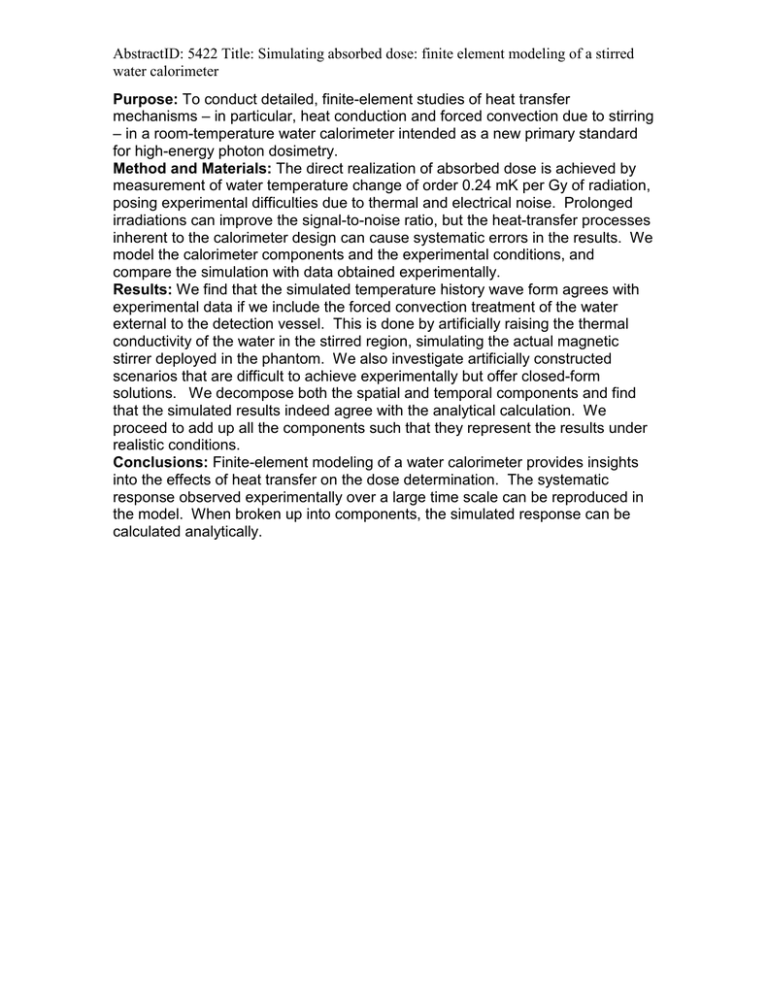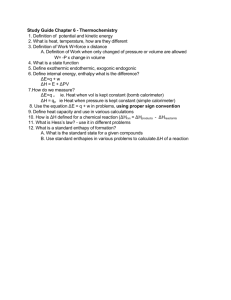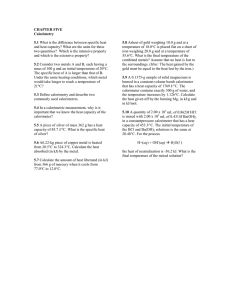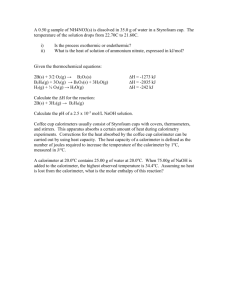AbstractID: 5422 Title: Simulating absorbed dose: finite element modeling of... water calorimeter
advertisement

AbstractID: 5422 Title: Simulating absorbed dose: finite element modeling of a stirred water calorimeter Purpose: To conduct detailed, finite-element studies of heat transfer mechanisms – in particular, heat conduction and forced convection due to stirring – in a room-temperature water calorimeter intended as a new primary standard for high-energy photon dosimetry. Method and Materials: The direct realization of absorbed dose is achieved by measurement of water temperature change of order 0.24 mK per Gy of radiation, posing experimental difficulties due to thermal and electrical noise. Prolonged irradiations can improve the signal-to-noise ratio, but the heat-transfer processes inherent to the calorimeter design can cause systematic errors in the results. We model the calorimeter components and the experimental conditions, and compare the simulation with data obtained experimentally. Results: We find that the simulated temperature history wave form agrees with experimental data if we include the forced convection treatment of the water external to the detection vessel. This is done by artificially raising the thermal conductivity of the water in the stirred region, simulating the actual magnetic stirrer deployed in the phantom. We also investigate artificially constructed scenarios that are difficult to achieve experimentally but offer closed-form solutions. We decompose both the spatial and temporal components and find that the simulated results indeed agree with the analytical calculation. We proceed to add up all the components such that they represent the results under realistic conditions. Conclusions: Finite-element modeling of a water calorimeter provides insights into the effects of heat transfer on the dose determination. The systematic response observed experimentally over a large time scale can be reproduced in the model. When broken up into components, the simulated response can be calculated analytically.




![Daures.wp9 [PFP#1201245225]](http://s2.studylib.net/store/data/018609018_1-28ebe47b1f8ee13c3d63ff3a1670a169-300x300.png)